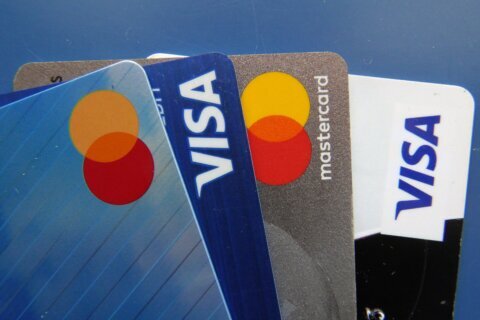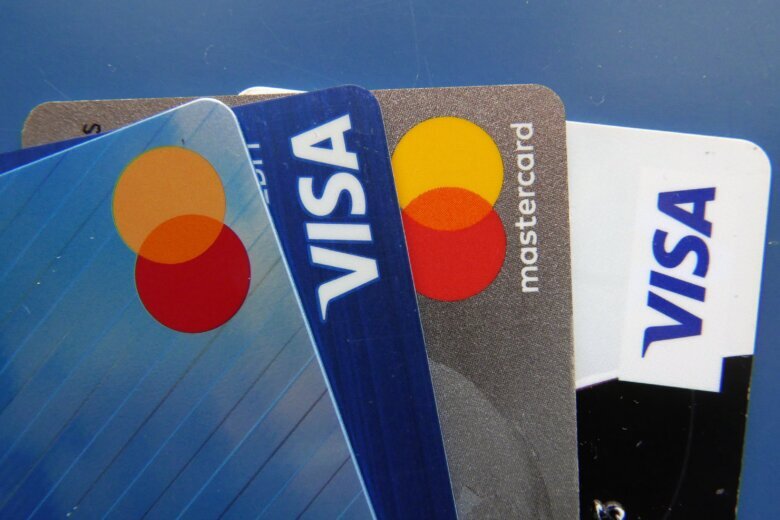
You’ve probably heard the question a million times: “Debit or credit?” But have you ever asked yourself which one is best?
Knowing the difference between debit and credit cards will help you decide which option makes the most sense. Read on to find out when using a credit card is best and when a debit card is the better option.
[Read: Best Rewards Credit Cards.]
Credit Card vs. Debit Card: Key Differences
Debit and credit cards work nearly identically when you’re at the register paying for groceries. However, they have some key distinctions to understand.
The main difference is that debit cards force you to spend your own money, while credit cards allow you to borrow it, says Brian Walsh, certified financial planner and senior manager of financial planning at SoFi. Here’s a closer look at what that means.
What Is a Debit Card?
A debit card is linked to your checking account and a PIN, and money is deducted from your account balance when you use the card for purchases. You can also use your debit card to pull out cash from an ATM or to get cash back at certain stores.
If you make a purchase for an amount that exceeds your available balance, you may be hit with an overdraft charge. Your account will show a negative balance until you make a deposit to bring it back into the black.
Many banks allow you to link your checking account to another account, such as savings, to cover overdrafts. However, a fee may be charged for this protection. If you opt out of overdraft protection, then any transaction that exceeds your available balance will be declined.
Also, unlike a credit card, a debit card doesn’t affect your credit, Walsh says.
What Is a Credit Card?
Though it’s also a piece of plastic you can swipe to make purchases, a credit card works differently from a debit card. Credit cards are linked to a revolving line of credit that you can draw against as needed.
You may carry a balance month to month, but you’ll be charged interest. You will also be required to make a minimum payment or you could owe an additional fee.
There are many specialized types of credit cards. Some offer rewards, such as cash back. Others may be designed for travelers, students or businesses. Certain cards provide incentives for balance transfers.
However, these perks don’t mean there aren’t any potential downsides to using credit. “Credit cards typically offer better cash back or rewards (than debit cards) but also typically come with high interest rates and annual fees,” Walsh says.
Also, because credit card activity is commonly reported to the credit bureaus, missing payments or accumulating a high balance could harm your credit score.
[Read: Best Online Banks.]
Are Credit Cards Safer Than Debit Cards?
Generally, credit cards are a safer option than debit cards because they provide better protection against fraud.
If your debit card or card information falls into the wrong hands, a criminal has direct access to all of the money in your checking account. Whatever is spent fraudulently is immediately gone from your balance, and you’re out the cash until the situation is sorted out.
Whether the situation is resolved in your favor depends on how quickly you’re able to catch and report the unauthorized charges. Consumer liability under the federal Electronic Fund Transfer Act is:
— $0 if you report the loss or theft before any unauthorized charges are made.
— Up to $50 if you notify your bank within two business days after learning about the card loss or theft.
— Up to $500 if you report the loss or theft within 60 days after your bank statement with the unauthorized charges is sent to you.
— Unlimited liability if you fail to notify the bank after the statement is sent to you.
These rules apply to the unauthorized use of your debit card as well as electronic funds transfers, such as ATM transactions, automatic payments and wire transfers.
In some cases, you might not realize that fraudulent use of your debit card has occurred until much later, like when you’re reviewing your account statements. If you can convince the bank that extenuating circumstances were involved, it must extend your notification timeline for a “reasonable period,” according to Nolo, a publisher of legal advice.
With credit cards, though, the maximum you will owe for unauthorized use is $50. Often, card issuers will not hold you responsible for any unauthorized charges.
Note that if your account number is used but your card is not stolen, you are not responsible for unauthorized credit card charges. You won’t be liable for unauthorized transactions with your debit card number if you report them within 60 days after the statement showing the charges is sent to you. Always review your monthly statements and make sure they match your receipts.
Advantages of Using a Debit vs. a Credit Card
Although credit cards tend to be safer from a fraud perspective, they are not always the best option. Here’s when to use a debit card instead of a credit card:
Debit Card Advantages
1. Help control spending. With your debit card, you can only spend what you have in the bank. Using a debit card is a good idea if you’re trying to build better buying and spending habits or to avoid racking up debt, says money-saving expert Andrea Woroch.
2. Save money on interest. Keep in mind that if you’re carrying a credit card balance month to month, you will need to pay interest on it. “While you work to pay off debt, commit to using your debit card,” Woroch says.
3. Get cash. Debit cards are the superior option when you need cash. Whether you visit an ATM or opt for cash back with a purchase at the supermarket or drugstore, you can use your debit card to help you avoid fees and interest charges. “Though you can usually get a cash advance using a credit card, it’ll cost you in the form of one-time fees and higher APRs for cash advances, so using debit for this reason is the smarter way to go,” Woroch says.
Credit Card Advantages
Still, credit cards can be more advantageous if you want to:
1. Keep your finances safe. Credit cards offer many layers of protection, but perhaps the best one is protecting your money in the bank, Woroch says. “If someone steals your credit card and makes purchases, the charges show up on your account, but money is not withdrawn from your bank account like you’d see with a debit card — which is terrifying,” she says. Ultimately, you wouldn’t be responsible for those purchases in either scenario. “But using a credit card means you still have access to your bank to withdraw money or make purchases, and none of your money is held up while the bank reviews this fraudulent activity,” Woroch adds.
2. Build credit. Your credit card issuer reports your spending and payment activity to the three credit bureaus each month. Keeping your credit utilization ratio low and paying off your balance each month can increase your credit score over time.
3. Protect your purchases. If you need to make a big-ticket purchase, it can be a smart move to use a credit card. You get a grace period on your credit card bill and often more protection on a purchase, Woroch says. A card with purchase protection can replace a damaged or stolen item bought with the card or reimburse you for it within a certain period of time. Your card might also offer an extended warranty or ability to request a refund, even after the allotted time passes with the retailer or when you have a problem getting your money back.
4. Earn more rewards. Though some debit cards offer rewards on spending, you can earn much more with a rewards credit card in many situations, Woroch says. For example, the Discover Cashback Checking account rewards customers with 1% back on most debit card purchases. Comparatively, the Discover it Cash Back credit card offers 5% back in quarterly rotating categories you must activate and 1% back everywhere else.
[Read: Best Credit Cards.]
The Bottom Line
Deciding whether to use a debit or credit card comes down to your financial circumstances and spending habits.
If you struggle with spending, then stick with a debit card, Walsh says. “The general idea is when you pay with cash or a debit card, you experience more pain subconsciously because it is tangible and immediate,” he says.
Additionally, you should use a debit card if you’re already carrying a credit card balance. “Credit cards typically come with extremely high interest rates, so carrying a balance is very expensive,” Walsh says. “Spending on a credit card not only makes it more likely you will overspend, but it also makes tracking your debt paydown progress difficult.”
On the other hand, if your spending and debt are in check, a credit card is the more financially rewarding option. Just be sure that if you put most of your purchases on a credit card, then maximize your benefits by tracking spending, planning how to redeem rewards and avoiding fees.
“Responsible credit card use comes with obvious perks, such as cash back or rewards, but it can also help you build credit and better manage cash flow,” Walsh says.
More from U.S. News
Is a Bitcoin Credit Card Right for You?
8 Biggest U.S. Credit Card Companies This Year
What You Should Know Before Getting Your First Credit Card
Credit Cards vs. Debit Cards: What Should I Use? originally appeared on usnews.com
Update 06/14/23:








